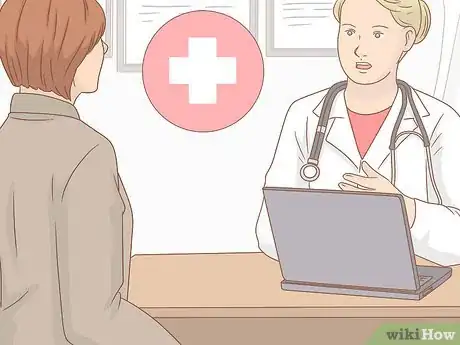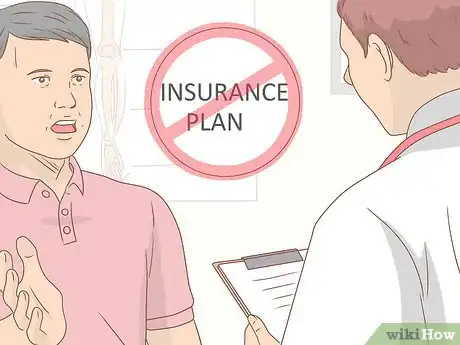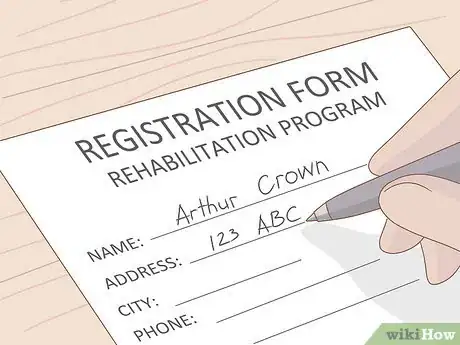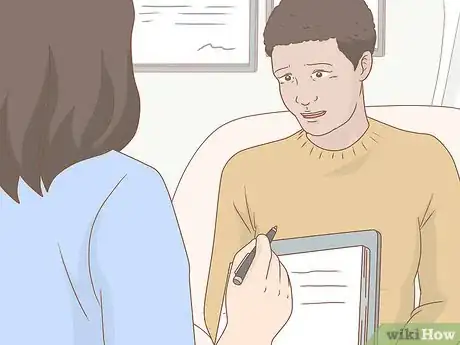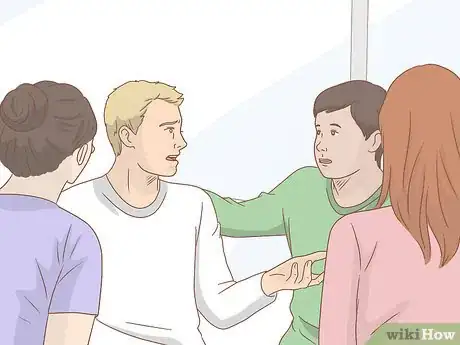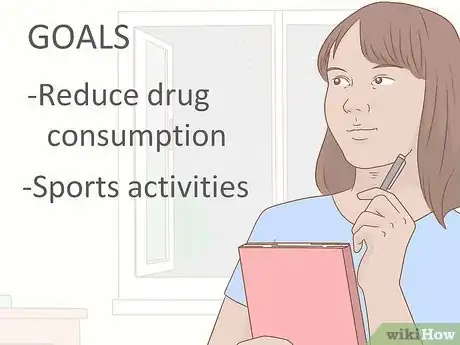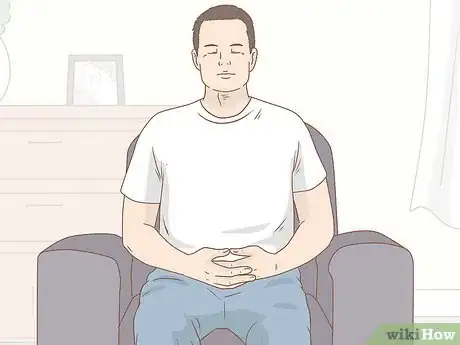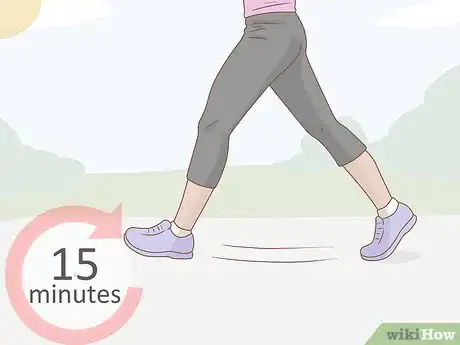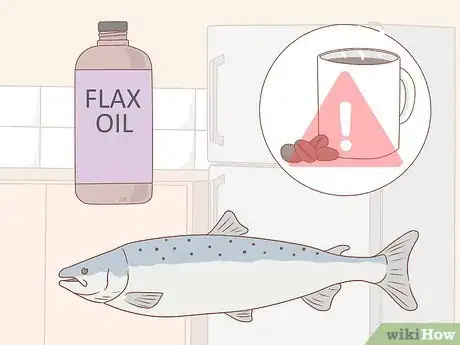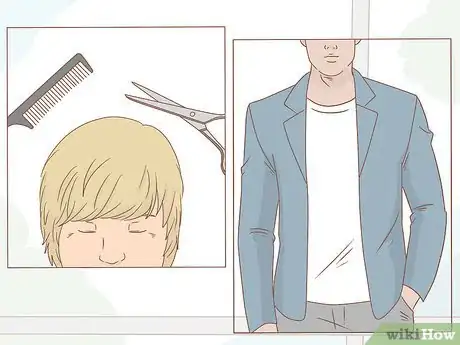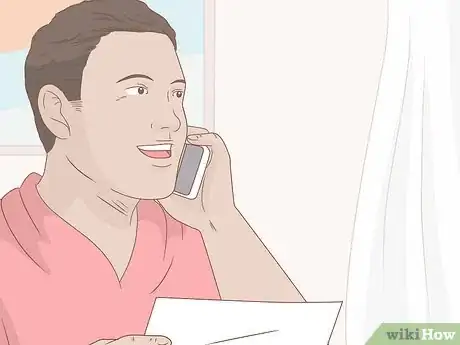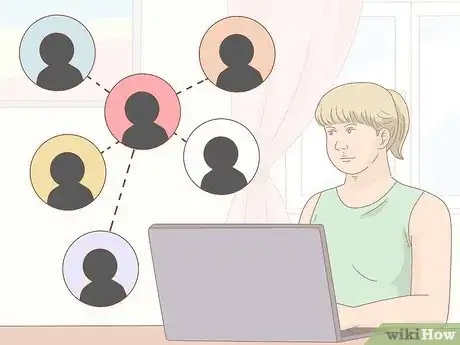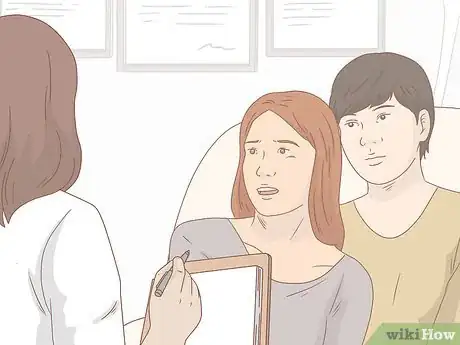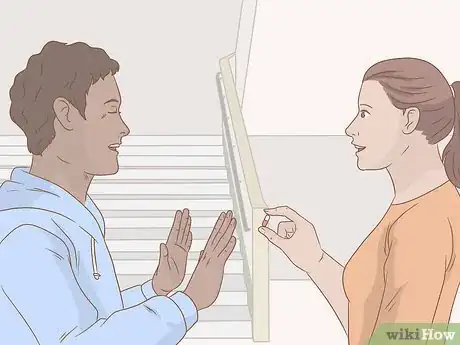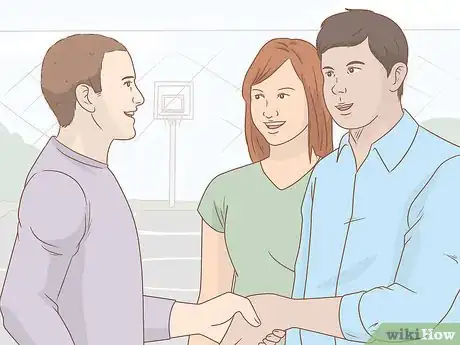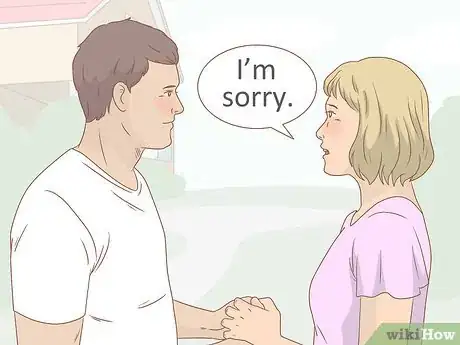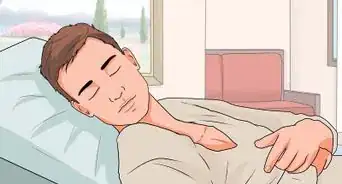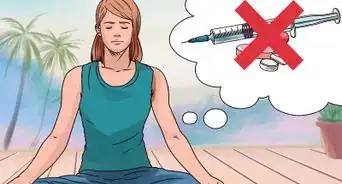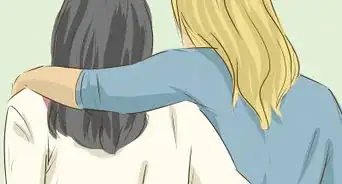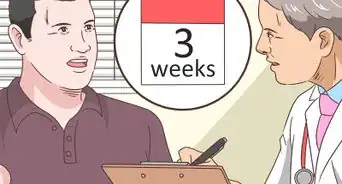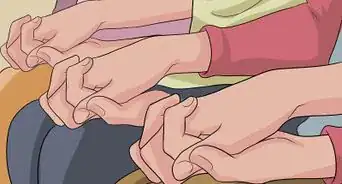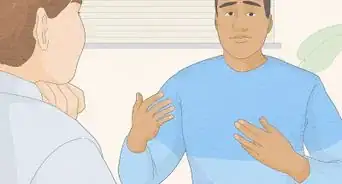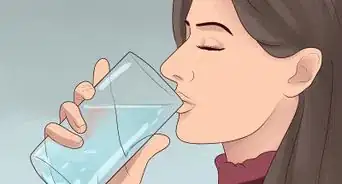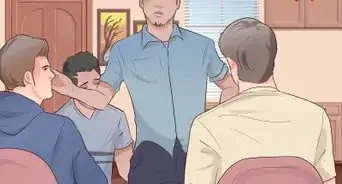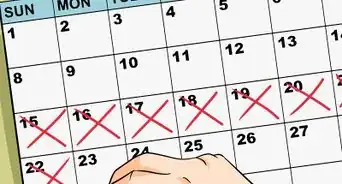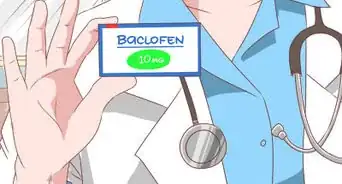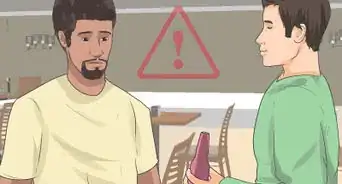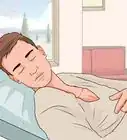This article was co-authored by Tiffany Douglass, MA. Tiffany Douglass is the Founder of Wellness Retreat Recovery Center, a JCAHO (Joint Commission on Accreditation of Healthcare Organizations) accredited drug and alcohol treatment program based in San Jose, California. She is also the Executive Director for Midland Tennessee at JourneyPure. She has over ten years of experience in substance abuse treatment and was appointed a Global Goodwill Ambassador in 2019 for her efforts in residential addiction treatment. Tiffany earned a BA in Psychology from Emory University in 2004 and an MA in Psychology with an emphasis on Organization Behavior and Program Evaluation from Claremont Graduate University in 2006.
There are 21 references cited in this article, which can be found at the bottom of the page.
This article has been viewed 59,271 times.
Drug abuse is a chronic disease. It affects approximately 8% of the US adult population. This condition involves the use and abuse of drugs despite harmful consequences. One consequence of drug abuse is addiction. Addiction changes the brain so that it is less able to control intense urges to take drugs.[1] Genetics, family history, psychological, and environmental factors all play a role in shaping drug abuse. Although it is a difficult condition to overcome, most people are able to overcome drug abuse.[2] It takes a complete commitment to overcoming drug abuse, social support and treatment.
Steps
Finding Help
-
1Talk to your doctor about a treatment plan.[3] A treatment plan should be tailored to your condition, physical and mental health history. It may use detoxification, behavioural or other counselling, medication, evaluation, and follow up treatment.[4] A treatment plan should help you to stop using drugs, stay drug free, and live the life you want to live.[5]
- Your doctor should ask you about substance abuse in a non-judgemental manner, and try to learn more about your quantity, frequency, duration, and route of administration of drug.
-
2Find medical help without insurance. If you do not have an insurance plan, you can still find medical attention for drug rehabilitation.[6] Finding medical help without insurance is more difficult but entirely feasible.[7]
- Go to a community health care clinic. Community health care clinics offer services that are just as good as the private health care clinics.[8] They have sliding scales so that you pay what you can afford.[9]
- Find a cash based medical provider. There are doctors who work on a cash only system. Since they do not have to deal with the insurance bureaucracy, they can sometimes pass along savings to the customer.[10]
- Use web based tools to find a doctor you can afford. For instance, you can use the OkCopay website to search for a doctor that meets your needs and price range.
Advertisement -
3Register for a drug rehab and recovery facility. Consider the location, price, duration, and style of treatment at the facility. Some recovery facilities are focused on the spiritual aspects of addiction. A medical model is emphasized at other facilities.
- Look into whether your insurance policy covers drug rehabilitation programs.
- Rehabilitation can be difficult to get coverage for under your insurance. Talk to your insurance provider, especially if you have a dual diagnosis of psychiatric and substance abuse, which is common. If so, then your insurance policy is more likely to cover the costs.
- Consider whether you need a place that addresses both spiritual and medical aspects of your condition.
-
4Try cognitive-behavioral therapy. This form of therapy emphasizes the need to learn new skills and behaviors in the recovery process. Cognitive-behavioral therapy empowers the individual with effective ways of coping with the urge to take drugs. The skills learned during this form of therapy can be retained years after recovery has been completed.[11]
- Behavioral therapy can also help you avoid triggers. It can help you cope with and avoid the people, places, and things you associate with taking drugs.[12]
-
5Join a support group for people with your addiction.[13] It can help to talk to people who are going through similar experiences. There are many support groups for people who are trying to overcome drug abuse. People who participate in support groups are typically more likely to remain clean and sober because it allows them to surround themselves with non-users.
- Cocaine Anonymous is a support group for people who want to get clean from cocaine and other mind altering substances. Check out a meeting in your area.[14]
- Narcotics Anonymous is a support group for people wishing to recover from narcotics. The only requirement to join is a desire to stop using drugs.[15]
- Nicotine Anonymous is a support group for people hoping to quit smoking and nicotine addiction.[16]
Changing Your Lifestyle
-
1Make a detailed plan to stop abusing drugs. You should include detailed and feasible goals. Drug treatment facilities will generally require complete abstinence from drugs and alcohol.[17] If you are quitting outside of a treatment facility, you may decide to set a series of goals that build in ambition until you have achieved abstinence.
- For instance, you might decide to gradually reduce your consumption in the first week or two, aim for near abstinence in the third week, and then aim for complete abstinence afterwards.[18] Talk to your doctor about your plan.
- Your plan should also include details on new activities that do not include drugs, and places to meet new people who are not part of the drug scene.
- You will need to be 100% committed to the goals you set. Achieving your goals will involve a complete change of your life such as the friends you spend time with and the way you spend your time.
- You may need to change your social circle so that outside influences and peer pressure will not hinder your recovery. A good friend will encourage clean living without using drugs or alcohol.
-
2Start a meditation practice to deal with your stress. Since you are quitting drugs, you will need another way to cope with stress and anxiety. Meditation can be used to relax and cope with stress and anxiety. Take 5 minutes in the morning or the evening, sit in a nice chair, and simply watch your breath move in and out of your body.
-
3Start a daily exercise routine. Exercise is a great way of coping with stress. It can help you cope during recovery from drug addiction. Also, exercise can help restore dopamine levels in the brain to their normal levels prior to drug abuse.[19] So, starting an exercise routine can help you cope and heal from drug abuse.
- Start a daily walking or hiking routine. A brisk 15 minute walk can help you cope with cravings and enjoy your surroundings.[20]
- Try yoga. Yoga offers a nice balance of physical activity and meditation to reduce stress and anxiety. It can help you balance mind and body and makes you feel good.[21]
- Try a strength training regime. Weight training can help you not only build muscle but also restore your natural sleep cycle. If you have insomnia problems, it can be especially beneficial.[22]
- Join a team sport. Playing on a team sport has the added benefit of socializing away from the temptations of drugs and alcohol.[23]
-
4Eat healthy fats, sufficient carbohydrates and limit caffeine. The brain can be damaged from drug abuse so you need to give it the proper nutrients to heal. For instance, a good diet to recover from drug abuse should include healthy fats (e.g., flax oil), limited caffeine intake, and adequate carbohydrates. You should also avoid fried foods and other sources of saturated fats.
- Try nutrition counselling. Medical nutrition counselling for individuals with drug addiction focuses on stabilizing mood, reducing stress, reducing cravings, and addressing underlying medical conditions.[24]
- Increase your consumption of omega 3 fatty acids. You can find omega 3 fatty acids in fish like Mackerel, Salmon, White Fish, Tuna, and Herring. You can also find healthy fats in flaxseeds, walnuts, and chia seeds. You can also find them in egg yolks.
-
5Get a haircut and some new clothes. By getting a haircut or dressing slightly more formal you can alter how others see you. This can also help you see yourself in a new way and as a clean person. By changing your wardrobe, you can improve your self confidence.[25]
Building a Supportive Social Network
-
1Phone old friends and family members. Take five minutes to write down the names of friends and family members you trust who might be able to help you recover. You will need the help of people who care for you. [26] Once you have written your list, phone the first person on your list and ask for help. Explain that they can help simply by listening to you on the phone or by offering more concrete assistance like a ride to the doctor.[27] Be open to whatever help they can offer.
- Remember that you may have to change your circle of friends. Being around people who use is a big reason for relapse.
-
2Build a social network to support your recovery. Start reaching out to more family members and friends. Ask if they would be able to support you in your recovery efforts. Eventually, you will have a network of supporters who can offer different kinds of help such as empathy, advice or practical assistance.[28]
-
3Find a therapist who offers network therapy. Some psychologists offer a form of treatment called network therapy. This involves a close group of friends, family, and a therapist who are all committed to helping you recover from drug abuse.[29] In this model, you have an entire social network supporting your recovery from drug abuse. Your friends, family, and therapist all play a role so that you have the right help and people when you need them. Simply ask your therapist or a potential therapist if they offer this treatment or similar approaches.
-
4Avoid socializing with drug using friends. It will be tough to lose these friends, but remember that being around certain people can be a trigger for your addiction.
- Try using behavioral therapy to help you cope with triggers such as particular friend groups and places.[30] Ask your therapist or potential therapist if they offer behavioural therapy and if it could help with your situation.
-
5Join new social groups to meet new friends. You will need to create new social networks to support your recovery process. It can help to join new social groups or clubs that are not associated with your drug history.
- Try joining a new social club or meetup. Meetups bring people together to share interests and hobbies. Find one in your area based on your interests.[31]
- Try joining a sports team. A sports team can be a nice way to socialize with new friends around common interests that do not involve drugs.
-
6Start repairing relationships with loved ones. Relationships with loved ones are often put under a lot of strain by drug abuse. It takes time and effort to repair these relationships. You should acknowledge the impact of your drug use on your relationships and show that you are taking concrete steps to get better.[32]
- Phone an addiction helpline counsellor for advice. Ask an addiction counsellor for advice about repairing relationships with loved ones. They have education and experience in these matters and will be able to offer specific advice for your situation.[33] You should be able to find one by simply searching online or googling “addiction helpline” followed by the name of your city or town.
- Tell your loved ones that you have a plan for recovery. Once you have figured out a detailed plan to stop using drugs, tell your loved ones about it.[34]
- Make a list of the people who have been harmed by your drug addiction and consider how you will make amends to them. In many cases, you will need to go way beyond a simple apology. You will need to make direct amends, such as paying back money, and indirect amends such as changing the behaviours that caused harm to the relationship.[35]
Expert Q&A
-
QuestionHow can I make it easier to stay away from drugs?
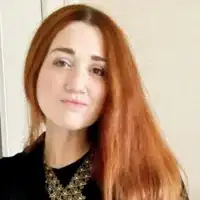 Tiffany Douglass, MATiffany Douglass is the Founder of Wellness Retreat Recovery Center, a JCAHO (Joint Commission on Accreditation of Healthcare Organizations) accredited drug and alcohol treatment program based in San Jose, California. She is also the Executive Director for Midland Tennessee at JourneyPure. She has over ten years of experience in substance abuse treatment and was appointed a Global Goodwill Ambassador in 2019 for her efforts in residential addiction treatment. Tiffany earned a BA in Psychology from Emory University in 2004 and an MA in Psychology with an emphasis on Organization Behavior and Program Evaluation from Claremont Graduate University in 2006.
Tiffany Douglass, MATiffany Douglass is the Founder of Wellness Retreat Recovery Center, a JCAHO (Joint Commission on Accreditation of Healthcare Organizations) accredited drug and alcohol treatment program based in San Jose, California. She is also the Executive Director for Midland Tennessee at JourneyPure. She has over ten years of experience in substance abuse treatment and was appointed a Global Goodwill Ambassador in 2019 for her efforts in residential addiction treatment. Tiffany earned a BA in Psychology from Emory University in 2004 and an MA in Psychology with an emphasis on Organization Behavior and Program Evaluation from Claremont Graduate University in 2006.
Founder, Wellness Retreat Recovery Center Either get rid of all of your drugs and substances or try to find a sober home/facility where you can live while you're recovering.
Either get rid of all of your drugs and substances or try to find a sober home/facility where you can live while you're recovering. -
QuestionCan you go to drug rehab without insurance?
 Tiffany Douglass, MATiffany Douglass is the Founder of Wellness Retreat Recovery Center, a JCAHO (Joint Commission on Accreditation of Healthcare Organizations) accredited drug and alcohol treatment program based in San Jose, California. She is also the Executive Director for Midland Tennessee at JourneyPure. She has over ten years of experience in substance abuse treatment and was appointed a Global Goodwill Ambassador in 2019 for her efforts in residential addiction treatment. Tiffany earned a BA in Psychology from Emory University in 2004 and an MA in Psychology with an emphasis on Organization Behavior and Program Evaluation from Claremont Graduate University in 2006.
Tiffany Douglass, MATiffany Douglass is the Founder of Wellness Retreat Recovery Center, a JCAHO (Joint Commission on Accreditation of Healthcare Organizations) accredited drug and alcohol treatment program based in San Jose, California. She is also the Executive Director for Midland Tennessee at JourneyPure. She has over ten years of experience in substance abuse treatment and was appointed a Global Goodwill Ambassador in 2019 for her efforts in residential addiction treatment. Tiffany earned a BA in Psychology from Emory University in 2004 and an MA in Psychology with an emphasis on Organization Behavior and Program Evaluation from Claremont Graduate University in 2006.
Founder, Wellness Retreat Recovery Center Yes, you can still get medical help overcoming drugs without insurance. Talk to local clinics to find one that will help you.
Yes, you can still get medical help overcoming drugs without insurance. Talk to local clinics to find one that will help you.
Warnings
- Don't start a new bad habit to replace another!⧼thumbs_response⧽
- If you were a heavy user, going cold turkey may result in a harmful withdrawal. Talk to a health provider about your risk to make sure you will be safe.⧼thumbs_response⧽
References
- ↑ https://www.drugabuse.gov/publications/drugfacts/understanding-drug-use-addiction
- ↑ http://www.scientificamerican.com/article/can-you-cure-yourself-of-addiction/
- ↑ Tiffany Douglass, MA. Substance Abuse Treatment Specialist. Expert Interview. 10 May 2020.
- ↑ https://www.drugabuse.gov/publications/drugfacts/treatment-approaches-drug-addiction
- ↑ https://www.drugabuse.gov/publications/drugfacts/treatment-approaches-drug-addiction
- ↑ Tiffany Douglass, MA. Substance Abuse Treatment Specialist. Expert Interview. 10 May 2020.
- ↑ http://health.usnews.com/health-news/health-insurance/articles/2015/06/25/5-tips-for-navigating-medical-care-without-health-insurance
- ↑ http://health.usnews.com/health-news/health-insurance/articles/2015/06/25/5-tips-for-navigating-medical-care-without-health-insurance
- ↑ http://health.usnews.com/health-news/health-insurance/articles/2015/06/25/5-tips-for-navigating-medical-care-without-health-insurance
- ↑ http://health.usnews.com/health-news/health-insurance/articles/2015/06/25/5-tips-for-navigating-medical-care-without-health-insurance
- ↑ https://www.drugabuse.gov/publications/principles-drug-addiction-treatment-research-based-guide-third-edition/evidence-based-approaches-to-drug-addiction-treatment/behavioral
- ↑ https://teens.drugabuse.gov/blog/post/recovery-steps-overcoming-addiction
- ↑ Tiffany Douglass, MA. Substance Abuse Treatment Specialist. Expert Interview. 10 May 2020.
- ↑ https://ca.org/
- ↑ http://www.na.org/
- ↑ http://nicotine-anonymous.org/
- ↑ http://www.rehabs.com/about/getting-sober/
- ↑ http://www.rehabs.com/about/getting-sober/
- ↑ https://www.addictioncenter.com/community/sweating-it-out-exercise-and-addiction-recovery/
- ↑ https://www.addictioncenter.com/community/sweating-it-out-exercise-and-addiction-recovery/
- ↑ https://www.addictioncenter.com/community/sweating-it-out-exercise-and-addiction-recovery/
- ↑ https://www.addictioncenter.com/community/sweating-it-out-exercise-and-addiction-recovery/
- ↑ https://www.addictioncenter.com/community/sweating-it-out-exercise-and-addiction-recovery/
- ↑ http://www.todaysdietitian.com/newarchives/120914p44.shtml
- ↑ http://www.huffingtonpost.com/rani-st-pucchi/how-your-styles-affects-y_b_10559156.html
- ↑ https://www.psychologytoday.com/articles/199211/overcoming-addiction
- ↑ https://www.mentalhelp.net/articles/recovery-from-addiction-social-support/
- ↑ https://www.mentalhelp.net/articles/recovery-from-addiction-social-support/
- ↑ https://www.psychologytoday.com/articles/199211/overcoming-addiction
- ↑ https://teens.drugabuse.gov/blog/post/recovery-steps-overcoming-addiction
- ↑ https://www.meetup.com/
- ↑ http://drugabuse.com/library/addiction-hurts-relationships/
- ↑ http://aforeverrecovery.com/blog/addiction/explain-addiction-loved-ones/
- ↑ http://aforeverrecovery.com/blog/addiction/explain-addiction-loved-ones/
- ↑ http://www.hazeldenbettyford.org/articles/macdougall/making-amends-is-more-than-an-apology
